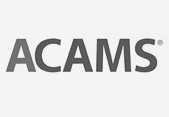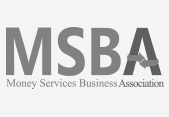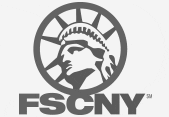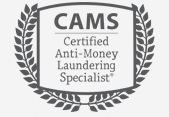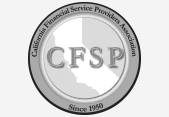A Compliance Management System, or CMS, is an important part of an Institution’s compliance efforts to maintain legal compliance. An effective CMS is integrated into the overall framework of the institution.
Establishing a customized CMS for your institution can be a daunting task, but we have put together some framework to help you better understand the key components.
Financial Service Centers are required by the Consumer Financial Protection Bureau (CFPB) to have a comprehensive CMS in place. Managing your CMS is a continuous process that requires reviewing your program to ensure it is not outdated or inadequate.
There are four interdependent key components to any CMS:
- Board of Director Oversight;
- Compliance Program;
- Consumer Complaint Response; and
- Compliance Audit.
Breaking those key components down, there are many different variables that need to be top-of-mind:
BOARD OF DIRECTORS OVERSIGHT
- Establish roles and responsibilities for members of your Board. Compliance must be the priority and focus for everyone in your organization.
- All employees, including Board of Directors and Senior Management must know their role in ensuring compliance.
COMPLIANCE PROGRAM
- Create a formal, written compliance program that includes policies, procedures and responsibilities. These documents are critical during a compliance review and/or audit.
- Educate employees of all levels. Ensure your employees understand internal policies and procedures as well as rules and regulations.
- Automate inefficient processes. Trying to manage compliance with manual processes leads to inefficiency and delays. Utilizing technology can improve productivity by reducing time and resources spent on manual processes.
- Be prepared for compliance audits from the bank, state, IRS or CFPB. Formally documenting your policies and procedures, initial and ongoing employee training, vendor partner due diligence and customer communications will go a long way in helping you demonstrate compliance and avoid penalties.
CONSUMER COMPLAINT RESPONSE
- Manage customer complaints. Addressing customer issues quickly and effectively is important to avoid compliance issues. Be certain to record, address and resolve all customer complaints. In addition, be sure to update tools and systems as needed.
COMPLIANCE AUDIT
- Test effectiveness. Test the effectiveness of policies and procedures with program monitoring, independent auditing, and evaluation. Managing third-party vendors. Successful partnerships with service providers are fundamental to your business. Make sure you pick vendors who will help, not hurt, your ability to demonstrate compliance. Also, make sure to have a proper vetting process in place.
If you would like help with any of the above, contact us. Our CAMS certified consultants would love to take a look and see how we can help.
(855) 922-4325
support@CapitalComplianceExperts.com
Tags: CAMS, CAMS-Audit, Capital Compliance Experts, CFBP, CMS, Compliance Consulting, Compliance Management System





